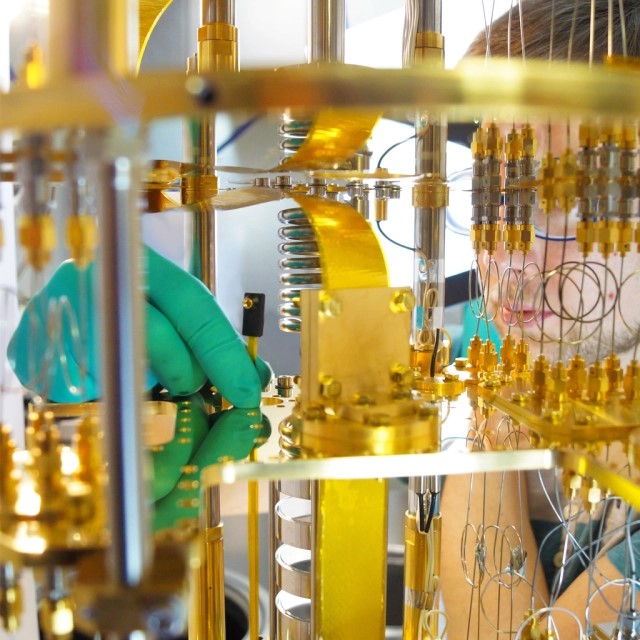Delft Circuits Chosen by NASA JPL Scientist to Support BICEP Project in Antarctica
 Delft Circuits announced its inclusion in the Background Imaging of Cosmic Extragalactic Polarization (BICEP) project in Antarctica, supporting NASA’s Jet Propulsion Laboratory at CalTech and other project partners. BICEP has been ongoing for several years and is now seeking solutions for a hardware upgrade to its telescope’s sensitivity as the project digs ever deeper into the cosmos to learn more about the origins of the universe. Consequently, a team at JPL is pioneering a new way to scale the number of detectors on the high optical frequency receivers of the telescope array.
Delft Circuits announced its inclusion in the Background Imaging of Cosmic Extragalactic Polarization (BICEP) project in Antarctica, supporting NASA’s Jet Propulsion Laboratory at CalTech and other project partners. BICEP has been ongoing for several years and is now seeking solutions for a hardware upgrade to its telescope’s sensitivity as the project digs ever deeper into the cosmos to learn more about the origins of the universe. Consequently, a team at JPL is pioneering a new way to scale the number of detectors on the high optical frequency receivers of the telescope array.
The team at the Jet Propulsion Lab has determined that advanced cables made by Delft Circuits will be installed in the telescope’s cryostat, as part of its new camera. The team will also replace the telescope’s sensors with new thermal kinetic inductance detectors (TKIDs), which are superconductive detectors leveraging the properties of quantum mechanics. The infrastructure requirements of TKIDs and the techniques used to measure them are extremely similar to what is required to set up and measure qubits in a quantum system. Once the new equipment is installed, the experiment will determine if the frequency multiplexing enabled by this new technology will allow for the necessary scaling of the telescope’s detectors to greater sensitivities.
“I was very happy to find Delft Circuits, which was able to meet our stringent requirements for transmitting microwave frequencies, flexibility and cryogenic performance in a single cable. This makes my work considerably easier” said Lorenzo Minutolo of Caltech and NASA’s Jet Propulsion Laboratory affiliate. “The cables perform well and remain flexible at any temperature. This is beneficial for us because they make it much simpler to assemble the hardware we need for this Antarctica upgrade. We can therefore devote more time and resources to other aspects of the experiment, which helps us reach our objectives faster and at a reduced expense.”
“Our product is the only cable capable of providing microwave transmission capability in a flexible cable which performs in cryogenic conditions. We are very pleased that scientists of this caliber see value in this 3-in-1 combination we’ve developed” said Kiefer Vermeulen, Research and Development Engineer at Delft Circuits. “Users can now accomplish what used to be weeks of setup work in only a couple of hours. We consider it an important milestone in our development to be trusted by the famous BICEP project, in conjunction with so many distinguished scientists and research partners. This is a proud day for our team.”
The Cri/oFlex multichannel and RF cryogenic I/O cables which will be used inside the BICEP Array telescope are durable and flexible, rather than rigid like the alternative. This provides users the opportunity to design and test multiple prototypes in their process, while reusing the cables over and over for each different iteration. This had not been possible before, thus providing significant value for users both in terms of cost and setup time.
The BICEP Array telescope looks for traces of gravitational waves in the cosmic microwave background using transition edge sensors. TKIDs will replace those sensors, and their performance will be validated by comparing their results with existing maps produced using the old technology. If successful, the experiment will validate TKIDs as a viable technology for future missions.
Image: Detail of a quantum computer with some connections highlighted Credit: Delft Circuits



